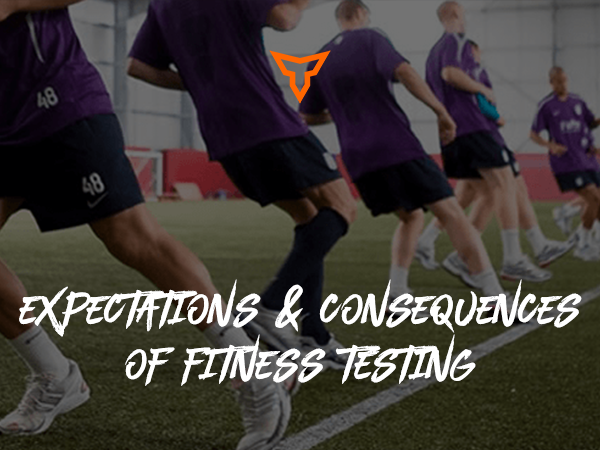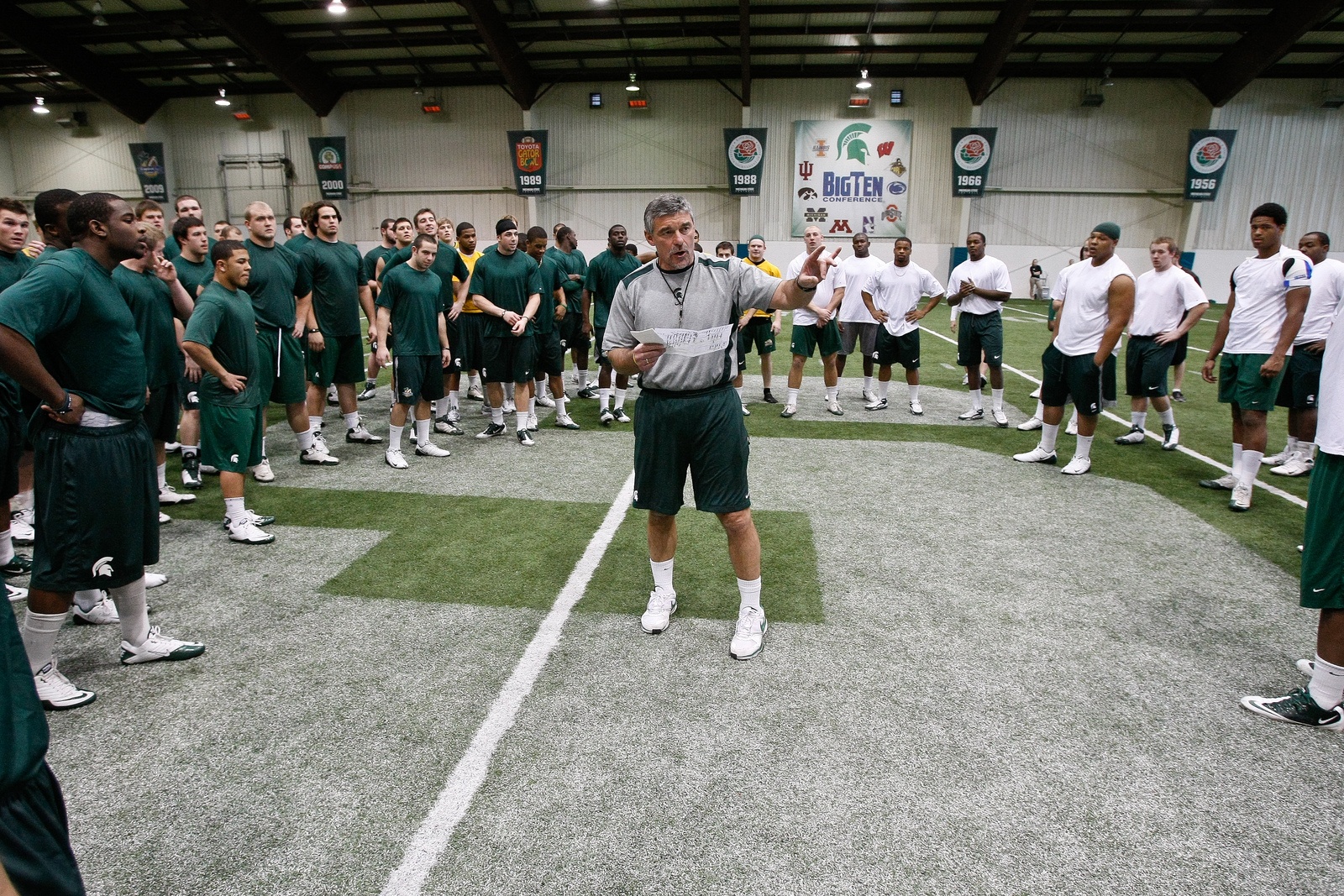All too often I see young coaches who are out there and afraid to make a mistake. They’re afraid of looking stupid in front of their peers, or failing in front of their bosses. However, is failure a bad thing? It is all dependent upon how you examine it. No matter what, it's OK to fail.
One of my favorite stories of all time is that of Thomas Edison on his finding the proper filament for the incandescent light bulb. It is rumored that he had more than 1,000 failed attempts in finding the right item to get the job done. When he finally found the proper filament that worked and lasted, at the press conference the reporter asked him, “How did it feel, Mr. Edison to have failed over 1,000 times in finding the proper filament for the incandescent light bulb?” Mr. Edison responded “I don’t know what you mean. I never failed one time. I simply found 1,000 ways to not make a light bulb.”
My good friend Brett Bartholomew often says “Failure is Fertilizer,” and I think Edison would agree. By finding what didn’t work, he was able to eliminate one more possibility and know that he needed to continue on. I like to go one step further, failure is only failure when you let it be. It’s not failure if you learn from it and adapt from it. If you are going all out and trying your best, and you make a mistake - you learn what not to do in those situations the next time.
From my own personal experience- I remember getting a technology, learning about it, figuring it out, and then trying to implement it the next day. It worked great for me when I tried to learn it, but then it collapsed and held everything up for the testing of the athletes the next day.
What did I learn from this? To never try something like that again? No, not really. What I learned was that you need to test something in every situation and try to find ways to make it fail, so you’ll learn what not to do. Currently I am working on a different way to test an isometric mid-thigh pull. We’ve had the equipment in for approximately a month, and found that after several tests in a row, the computer fails. It works great for the first through about 10th test, and somewhere in the neighborhood of 11-12 it fails. If I were to have simply brought it to the athletes and different coaching staffs, it may have fallen flat and I may have not gotten another opportunity. I learned my lesson as a graduate assistant and tried to replicate a session before going to capture data live. You never know what coach will think you’re wasting his athletes' time rather than providing valuable information.
Program workouts online on our TeamBuildr app. Try a 14-day trial >>
Try different things as a coach. Try different cues, try different programs, try different styles of programming, try different exercises. Try them on yourself and your friends, then try them on your athletes. If it doesn’t work, then own up to it and admit it and move on. I remember a mentor of mine Buddy Morris experimenting with a new style of exercise performance with a team he had many years ago. I happened to be there when he said, “Alright guys. I want to apologize to you. We thought that this different way would be far better than what we were doing, and we were wrong. I wasted your time and I’m sorry.” Instead of being berated by those athletes, he drew their admiration and respect. They responded, “Nah Buddy - you’re good man. You’ve got to push the envelope. It didn’t cost us anything at all. Keep trying man, we got you.” I still remember standing there in awe, as a coach only in about the 2nd or 3rd year of my career, realizing that a person of his level still made mistakes. Not only that, but a person of his level made mistakes and admitted it. Not only that, but a person of his level made mistakes, admitted it, and wasn’t shunned but more greatly admired by his athletes? This to me was unreal and unfathomable. How did Buddy Morris get to be Buddy Morris? By trying new things. He read about them, learned about them, then tried them. Some things worked amazingly well. Some things did not.
If you put a cone in the wrong place - it’s OK. You’ll learn where it goes for the next time this drill is done (if you mess putting the same cone in the same wrong place the next time, that’s not OK though). If you use an incorrect coaching cue - that’s OK (as long as it’s something that’s appropriate). You’ll learn what cue to use for the next time the exercise is done. Sometimes you may try a cue that works better than what any coach ever did before and then your boss will end up using that the next time.
While many people attribute the APRE and VBT to me, it is really Rick Perry of the Chicago Bears. He was my boss and encouraged me to try out everything I could. Experiment with myself, experiment with my teams. If it works well with my teams, then maybe we will use it with football in the future. The APRE came as a result from this. I was doing well with my periodization plans, getting 5-10 pounds in a 5-6 week period. Rick always encouraged me to try new things, so I implemented the APRE with women’s soccer and field hockey on a whim. The next thing you know, they’re doing 5-7 reps with their old 1RM in a 6 week period.
Think for a minute: What would have happened if Edison would have given up after a few failures, or even a few hundred? We may all still be utilizing gas lamps in our houses instead of the convenient light bulb. Failing if fine, it’s great, and it’s needed. We need to find what works and know why it doesn’t work. We need to continue to push the envelope and get better at things. We need to discover newer and better methods of training. We need to discover new and better exercises that have greater transfer to the sports than we currently use.
For the older people in the profession, think for a second about your word choice. What if Rick would have scolded me for my first attempts at changing programming because they didn’t work as well as what he had done previously? I would have quit trying and just done what he did. He encouraged me, set me down different paths, gave me different books or authors to read, people to call. He sat me down and talked to me about things I did wrong from either a behavior standpoint or something that could be dangerous. He always addressed the situation and not me as a person. Failure may be fertilizer, the young person is the seed, but you as the mentor are the gardener in charge of watering and weeding. If you cut off the first sprouts, you’ll never eat a tomato. Water them with what they need, help weed out what is wrong, help them prune back mistakes, and then you can watch the fruits of your labor as they blossom; and always remember that it's OK to fail.
-
This is a guest blog by Dr. Bryan Mann, Assistant Director of Strength & Conditioning at University of Missouri. You can follow Coach Mann on Twitter, connect with him on Facebook, or keep up with his other blogs via Elite FTS.
Subscribe to our blog
Subscribe to receive the latest blog posts to your inbox every week.
Related posts

If Your "Strategic Plan" is Missing This Then Your Weight Room Will Fail

My Players Failed the Conditioning Test, What's Next?

